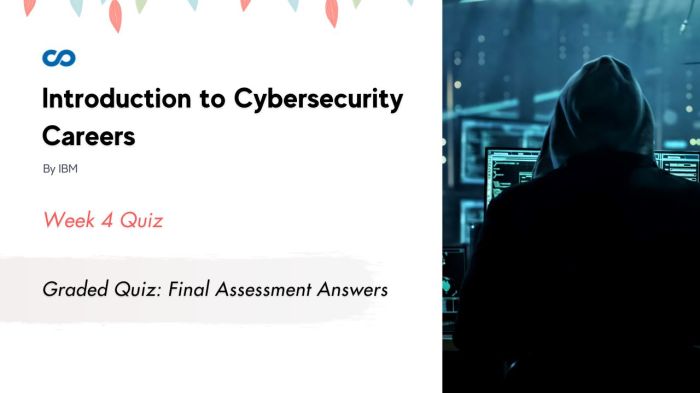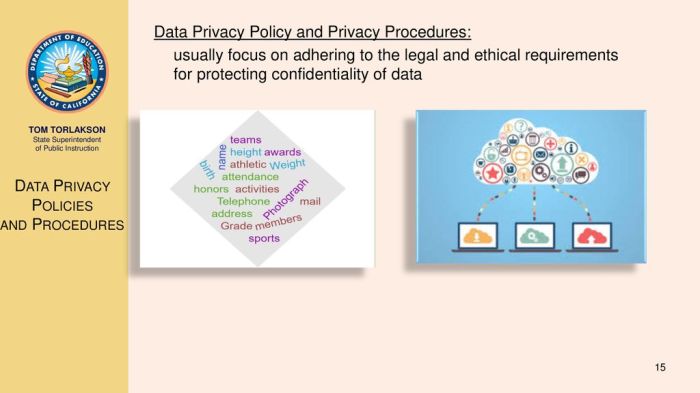Ferpa confidentiality of records final assessment answers – FERPA Confidentiality of Records: Final Assessment Answers explores the legal and ethical considerations surrounding the protection of student records, particularly in the context of final assessment answers. This comprehensive analysis sheds light on the Family Educational Rights and Privacy Act (FERPA) and its implications for educators, students, and parents.
FERPA establishes clear guidelines for safeguarding the privacy of student information, including final assessment answers. Understanding these regulations is crucial for ensuring compliance and maintaining the integrity of student records.
FERPA and Confidentiality of Records: Ferpa Confidentiality Of Records Final Assessment Answers

The Family Educational Rights and Privacy Act (FERPA) is a federal law that protects the privacy of student education records. It was enacted in 1974 and has been amended several times since then. The purpose of FERPA is to ensure that students have access to their education records and that their records are not disclosed without their consent.
FERPA applies to all educational institutions that receive federal funding. This includes public and private schools, colleges, and universities. FERPA protects a wide range of student records, including:
- Academic records, such as transcripts, grades, and test scores
- Disciplinary records
- Medical records
- Financial records
- Personal information, such as addresses, phone numbers, and email addresses
FERPA gives students the following rights:
- The right to inspect and review their education records
- The right to request that their education records be amended
- The right to consent to the disclosure of their education records
- The right to file a complaint with the U.S. Department of Education if they believe their FERPA rights have been violated
Final Assessment Answers
FERPA protects the confidentiality of final assessment answers. This means that educators cannot release final assessment answers to anyone other than the student who took the assessment, without the student’s consent. There are a few exceptions to this rule, however.
For example, educators may release final assessment answers to the student’s parents or guardians if the student is a minor. Educators may also release final assessment answers to other educators who have a legitimate educational interest in the student’s performance.
FERPA protects the confidentiality of final assessment answers in a number of ways. First, FERPA requires that educators keep final assessment answers confidential. Second, FERPA gives students the right to inspect and review their final assessment answers. Third, FERPA gives students the right to request that their final assessment answers be amended.
Finally, FERPA gives students the right to file a complaint with the U.S. Department of Education if they believe their FERPA rights have been violated.
Best Practices for Maintaining Confidentiality, Ferpa confidentiality of records final assessment answers
There are a number of best practices that educators can follow to maintain the confidentiality of final assessment answers. These best practices include:
- Storing final assessment answers in a secure location
- Limiting access to final assessment answers to authorized personnel only
- Destroying final assessment answers after they are no longer needed
- Educating students about their FERPA rights
- Responding promptly to any requests from students to inspect or review their final assessment answers
Educators who violate FERPA confidentiality requirements may face a number of consequences, including:
- Loss of federal funding
- Civil penalties
- Criminal penalties
Ethical Considerations
There are a number of ethical considerations related to the confidentiality of final assessment answers. These ethical considerations include:
- The right of students to privacy
- The need to protect the integrity of the assessment process
- The potential for harm to students if their final assessment answers are released
Educators must carefully weigh these ethical considerations when making decisions about the release of final assessment answers.
Essential FAQs
What are the key provisions of FERPA?
FERPA protects the privacy of student records, gives parents and students certain rights regarding those records, and sets forth requirements for the disclosure of student information.
How does FERPA protect the confidentiality of final assessment answers?
FERPA generally prohibits the release of final assessment answers without the student’s consent. Exceptions to this rule include situations where the release is required by law or where the student has waived their right to confidentiality.
What are the consequences of violating FERPA confidentiality requirements?
Violating FERPA confidentiality requirements can result in disciplinary action, including fines and loss of federal funding.

